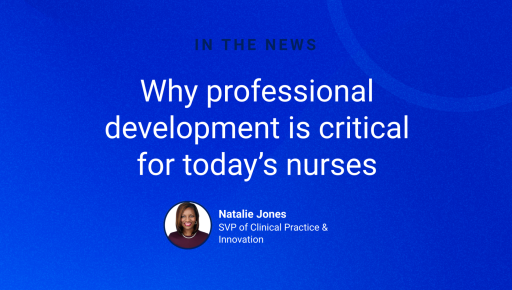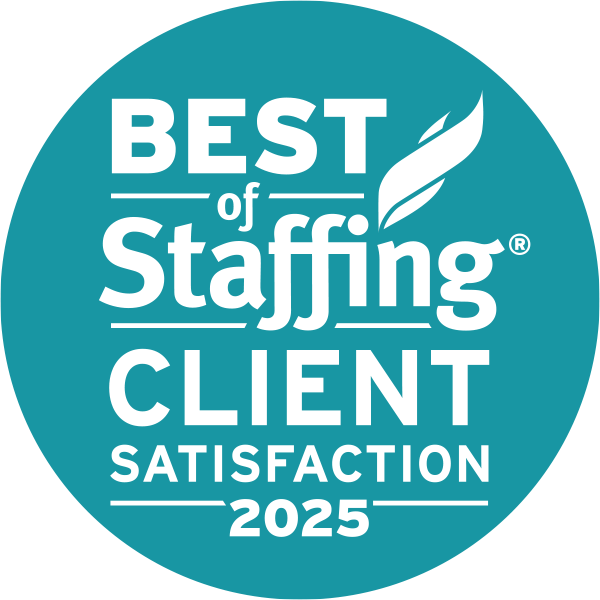
Local nursing careers
Partner with Prolink and you will be paired with a dedicated team of healthcare recruiters. Prolink recruiters are committed to finding you the positions that suit you best and will support you throughout every assignment you take.
Why nurses choose Prolink:
- The best compensation and benefits
- Dedicated, supportive Clinical Team
- Free mental health resources
- Tuition discounts
- Day-one health coverage and 401(k) enrollment

Local medical-surgical nurse jobs
Medical-surgical nurses carry out typical nursing duties, but they also care for those who are awaiting or recovering from surgical procedures — usually stable patients who don’t require continuous monitoring. They gather and interpret vital signs, administer medications, and collaborate care with healthcare teams. Med-surg nurses often work in hospitals, surgical centers, or other healthcare facilities. They can also visit clients at home.

Local progressive care unit (PCU) nurse jobs
Progressive care unit nurses help acutely ill patients who need a higher level of care than a med-surg unit offers. They often closely monitor patients who have chronic diseases or who are recovering from injuries or surgeries. PCU nurses administer medications, assist with bedside procedures, check vital signs, and prepare equipment that’s necessary for treatments.

Local intensive care unit (ICU) nurse jobs
ICU nurses work in intensive care units, coordinating treatment with other medical professionals and offering therapies to patients who are critically ill and require constant monitoring. They perform a variety of tasks, including administering tests, monitoring vital signs, and educating patients and family members. Because of the critical nature of their work, these professionals must have specialized skills and comprehensive knowledge of disease pathologies.

Local emergency room (ER) nurse jobs
ER nurses care for patients who are facing medical emergencies and require immediate help. As such, they must be able to treat patients facing a variety of illnesses and injuries, making split-second decisions that can save their lives. They must know how to triage and stabilize patients, use advanced equipment to monitor and treat them, and conduct minor medical procedures like setting broken bones.

Local telemetry nurse jobs
Telemetry nurses treat patients with cardiovascular issues and other critical conditions, needing closer monitoring than they can receive in a med-surg unit. These professionals use specialized equipment to assess vital signs, administer medications, document care, and respond to medical emergencies. Besides working in telemetry units, these nurses can also work in intensive care units and other specialized areas in hospitals and facilities.

Local Allied health jobs
Allied health encompasses a wide range of fields and positions within healthcare. As a result, those who work in allied health may assist with administration, management, rehabilitation, and diagnostics, working either directly with patients or in labs or clinics. Some of the most popular jobs in this field include dental hygienists, certified nursing assistants, dietitians, occupational therapists, and ultrasound technicians.

Healthcare School jobs
For people who enjoy the education and edification of students, there are various opportunities available to provide health services in a school setting. For example, school nurses help keep students and teachers healthy, while school speech pathologists help students develop speech fluency and grow social communication skills.
Why choose a local nursing job?
Local nursing contracts present a compelling alternative to traditional travel assignments, offering healthcare professionals the best aspects of both worlds. These positions deliver competitive compensation packages while eliminating many expenses associated with travel nursing, resulting in comparable take-home pay for most practitioners.
Professional growth remains steady through local contracts as nurses build lasting relationships within their healthcare communities. The ability to develop expertise in specific facilities, combined with opportunities for specialized training and advancement, creates a solid foundation for long-term career success.
The greatest advantage of local contracts lies in their unique balance of professional flexibility and personal stability. Nurses maintain their community connections, family relationships, and established support systems while benefiting from the higher pay rates and scheduling freedom typically associated with travel positions.
Advantages of working in the healthcare field
Healthcare providers are more in demand than ever before, and this high demand is poised to continue for at least another decade. In fact, the majority of careers in the healthcare field will likely expand in the coming years.
In healthcare, you can expect competitive salaries and a variety of benefits, including retirement planning, health insurance, and paid leave. Although some careers require advanced degrees, there are numerous positions in the field that only require a high school diploma and certification, letting you get to work quickly.
Working in the field of healthcare allows you to make a difference. You’ll be impacting the well-being of others who are struggling with health concerns or helping them better understand their health. You can be at the front lines of a health crisis or work in the background to provide answers for those facing health challenges.
As part of the healthcare field, you may work with pharmacists, surgeons, and general practitioners, and you’ll perform a variety of tasks crucial for the diagnosis, treatment, and prevention of diseases. Your work environment could be a hospital, a clinic, a community health center, or a pharmacy, and you’ll interact with people from all backgrounds and walks of life.
Connect with a Prolink Recruiter
Healthcare careers FAQ
For people who want to get to work in the healthcare field as quickly as possible, there are a few career options available. For example, nuclear medical technologists and MRI technologists can get an excellent salary while only needing an associate degree.
In some states, surgical technicians only need a certificate of completion from an accredited program. If you want to get into nursing, on the other hand, you can become a registered nurse with just an associate or Licensed Practical Nurse (LPN) degree and state licensing.
Although all healthcare professionals are in high demand, nurses and allied professionals are especially sought-after. Speech-language pathologists and physical therapists are also regularly needed in various settings. Employers are also searching for audiologists, dietitians, and dental hygienists.
When it comes to nursing, family nurse practitioners and certified registered nurse anesthetists are the most in demand.
It can be difficult to choose the right healthcare career—to help narrow your choices down, consider what your career goals are. Do you want to be able to take on leadership roles in the future? If so, becoming an RN can be a great option.
You should also consider whether you want to spend significant time in school or get to work as soon as possible.
A local nursing contract provides the flexibility similar to travel nursing but without the need to relocate. It allows nurses to work on a per diem basis within their local area, offering a balance between regular and travel nursing opportunities.
Prolink Perspectives
Our blog covers the topics you care about most.
Learn about healthcare industry trends, career development, and how to land the job you want.
Apply for Your Next Position
Let us find your perfect fit. Connect with a recruiter today.









